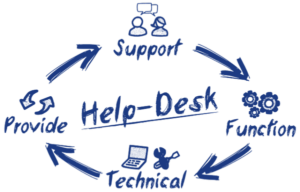Although many businesses are using Cloud Storage, this does not necessarily mean that they are not making a few mistakes that can be damaging to IT operations. Not sure how someone can use Cloud Storage improperly? Check out these tips below:
1. Not Making Room in the Budget for the Unexpected
The purpose of having IT support is typically to conduct routine maintenance. With this support, your company and sensitive data can remain protected, and give you peace of mind. It has been noted that approximately 80% of a company’s IT budget is centered around routine maintenance. However, that doesn’t mean you shouldn’t plan your budget to include important maintenance that isn’t typically routine.
Unfortunately, even if you purchased the best firewall support systems can have unexpected issues, and if it’s experiencing downtime, it can be critical for your business. To prepare for the unexpected, users should frequently back up your data and keep that data protected with encryption. Redundant data centers provide almost complete (99.99%) reliability, including local network functions still working if the Cisco Meraki dashboard went down, ensuring professional Meraki support day in and day out.
2. Not Taking Advantage of all the Pros of Cloud Computing
There are three basic parts to cloud computing: infrastructure as a service, platform as a service, and software and software as a service. Not everyone is well aware of these parts and what works best for their organization. What do these services mean exactly? Let’s take a look via Montis:
Infrastructure as a Service, or IaaS, gives business access to vital web architecture, such as storage space, servers, and connections, without the business need of purchasing and managing this internet infrastructure themselves. Because of the economies of scale and specialization involved, this can be to the benefit of both the business providing the infrastructure and the one using it. In particular, IaaS allows an internet business a way to develop and grow on demand. Both PaaS and SaaS clouds are grounded in IaaS clouds, as the company providing the software as service is also providing the infrastructure to run the software. Choosing to use an IaaS cloud demands a willingness to put up with complexity, but with that complexity comes flexibility. Amazon EC2 and Rackspace Cloud are examples of IaaS. The infrastructure of cloud computing makes it ideal for storage, it has much more potential than most people realize. If you invest in a Meraki equipment or any other type of cloud computing system, make sure you understand its full range of abilities in regards to telecommunication, collaboration, and efficiency among employees.
Platform as a Service (PaaS) clouds are created, many times inside IaaS Clouds by specialists to render the scalability and deployment of any application trivial and to help make your expenses scalable and predictable. Some examples of a PaaS system include: Mosso, Google App Engine, and Force.com. The chief benefit of a service like this is that for as little as no money you can initiate your application with no stress more than basic development and maybe a little porting if you are dealing with an existing app. Furthermore, PaaS allows a lot of scalability by design because it is based on cloud computing as defined earlier in the article. If you want a lean operations staff, a PaaS can be very useful if your app will capitulate. The most important negative of using a PaaS Cloud provider is that these services may implement some restrictions or trade-offs that will not work with your product under any circumstances.
Software as a Service (SaaS) is relatively mature, and the phrase’s use predates that of cloud computing. Cloud applications allow the cloud to be leveraged for software architecture, reducing the burdens of maintenance, support, and operations by having the application run on computers belonging to the vendor. GMail and Salesforce are among examples of SaaS run as clouds, but not all SaaS has to be based in cloud computing.
3. Not Choosing a Flexible Storage Option
Since the world is moving to mobile, wireless connections on a 24/7 basis, it’s no surprise that you will need a storage option that can move with you. Since every user has different needs, cloud storage systems come in many variable types and sizes. It is important to take in to account all of your options and possible scenarios when it comes to selecting the best cloud storage option for you. Any professional Rush Tech Support analyst can inform you about the various pros and cons of the cloud storage solutions they have available.
Ultimately, more than half of survey respondents say their organization currently transfers sensitive or confidential data to the cloud, and understanding these critical mistakes can help you keep valuable data as protected as possible. To learn more about these infrastructures and how to use Cloud Storage to its highest capacity, call a Rush Tech Support analyst today at 844-881-7874 (RUSH) or +18448817874 .




